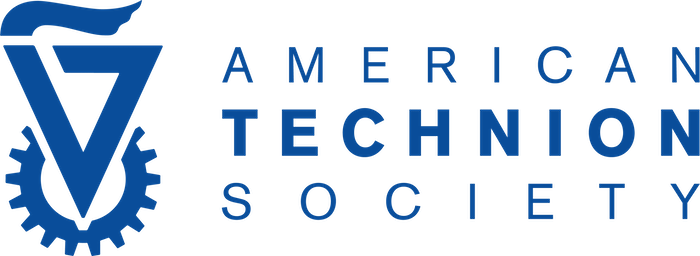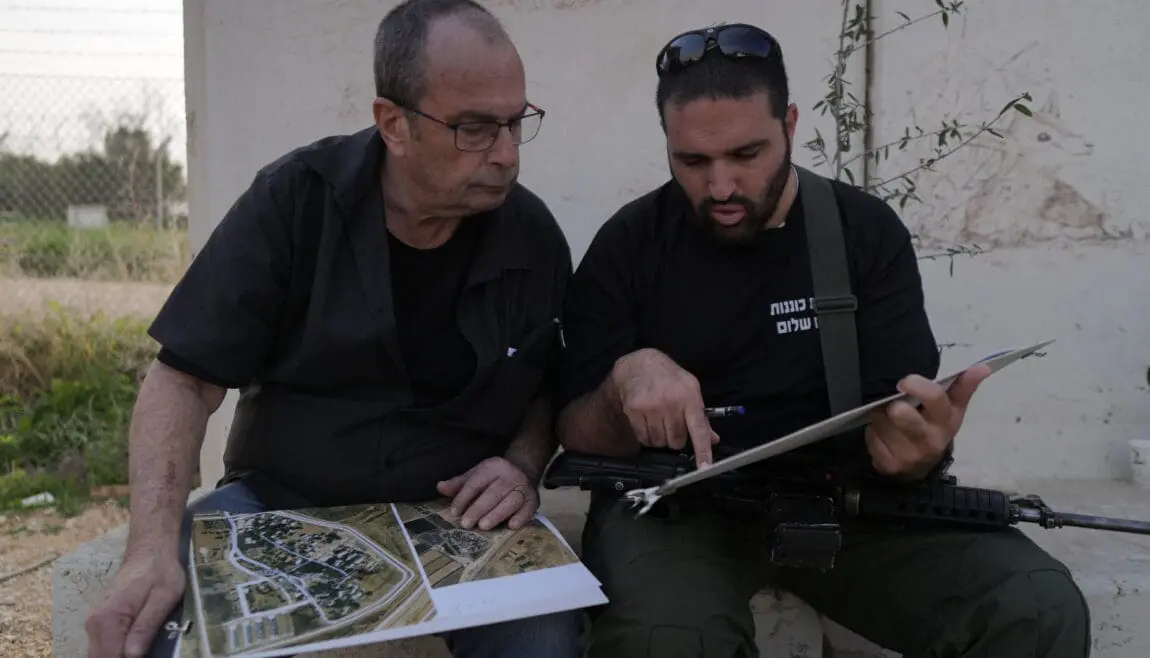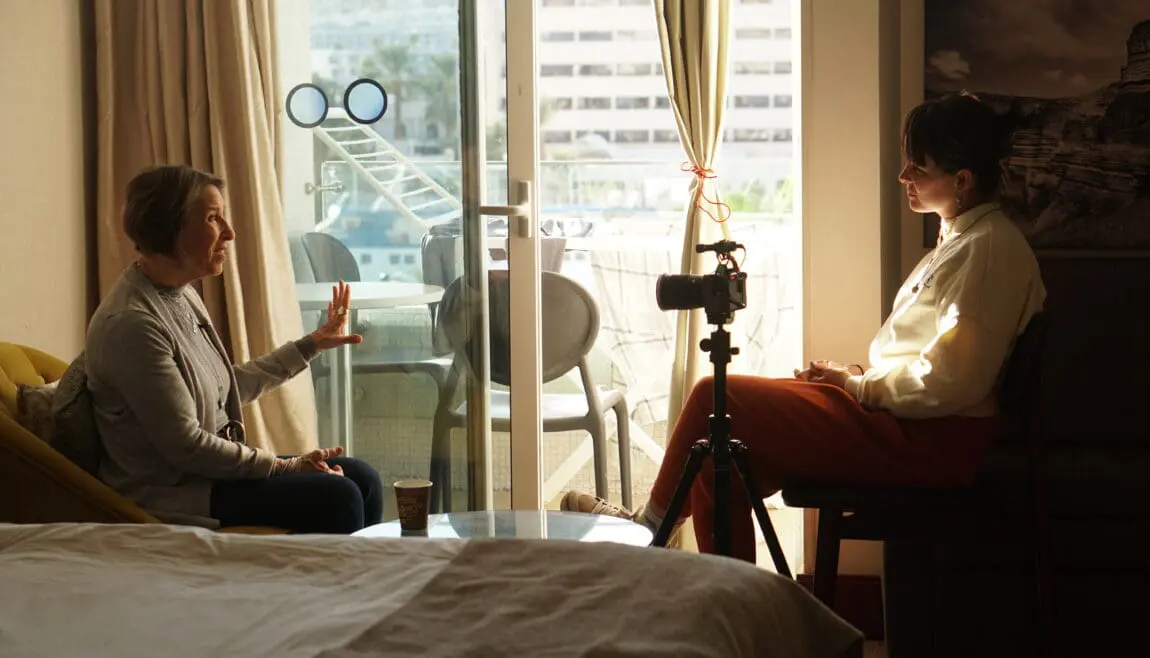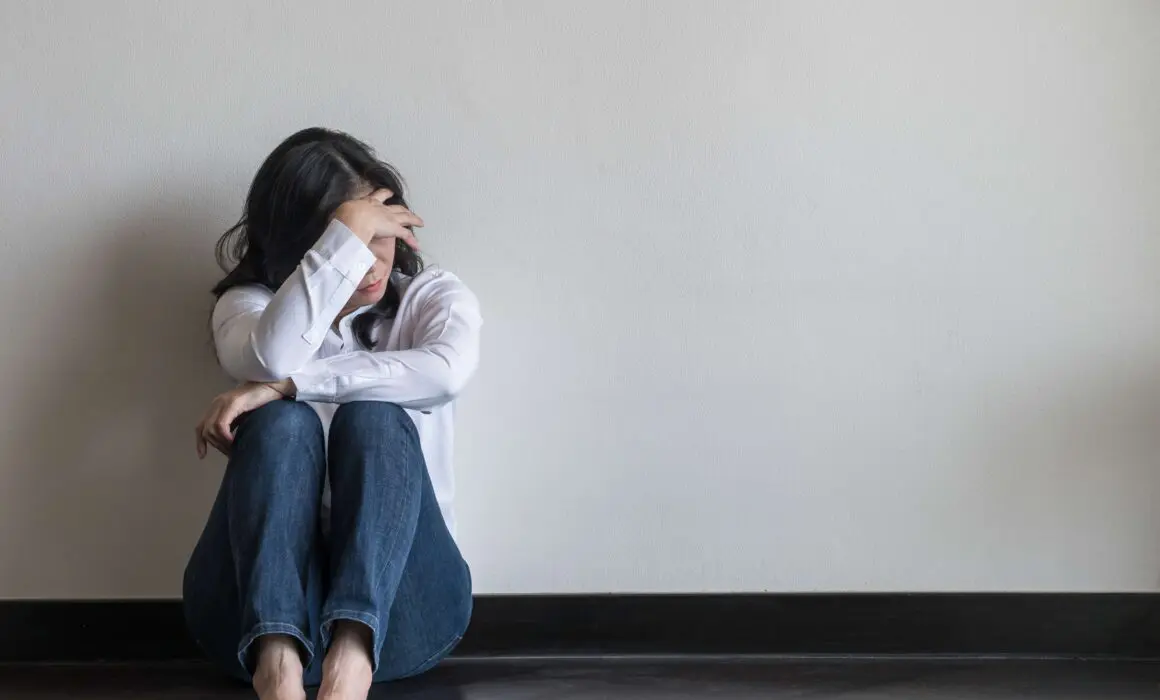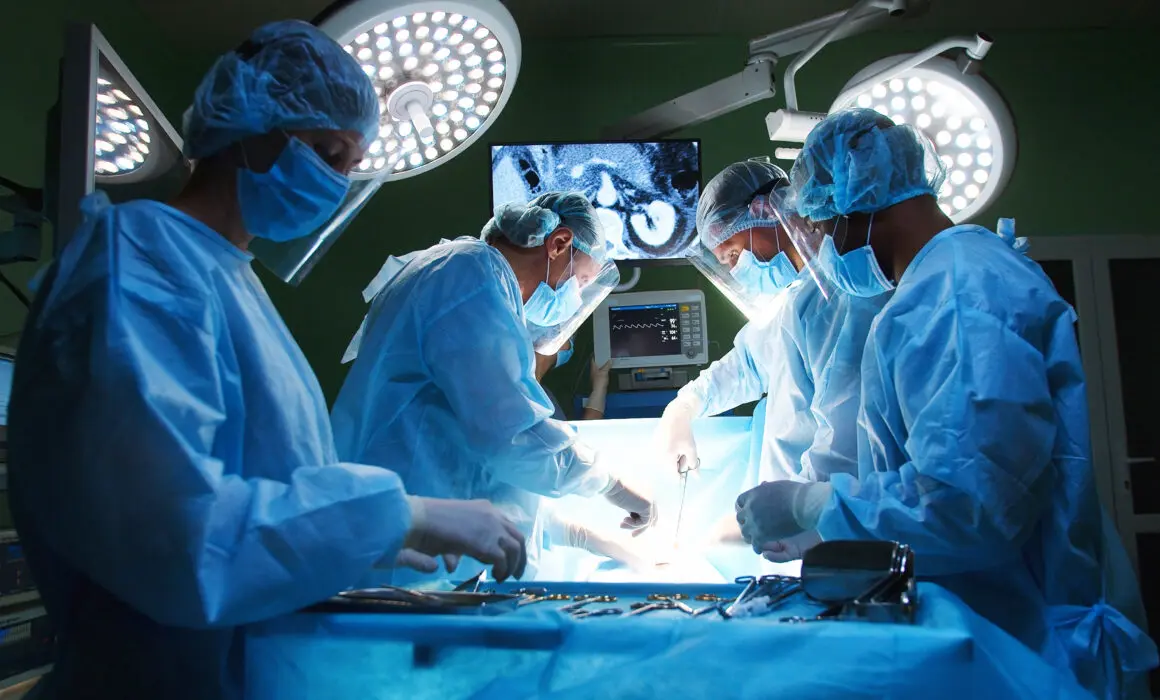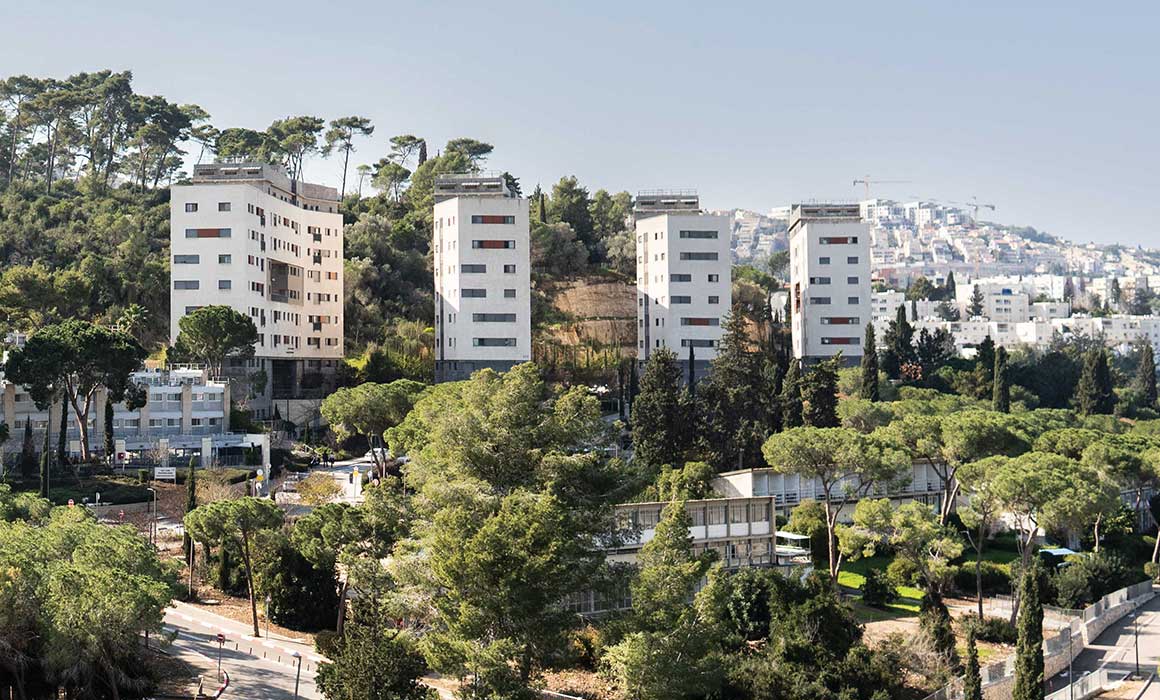Sagi Alony: A Responsibility to Bear Witness
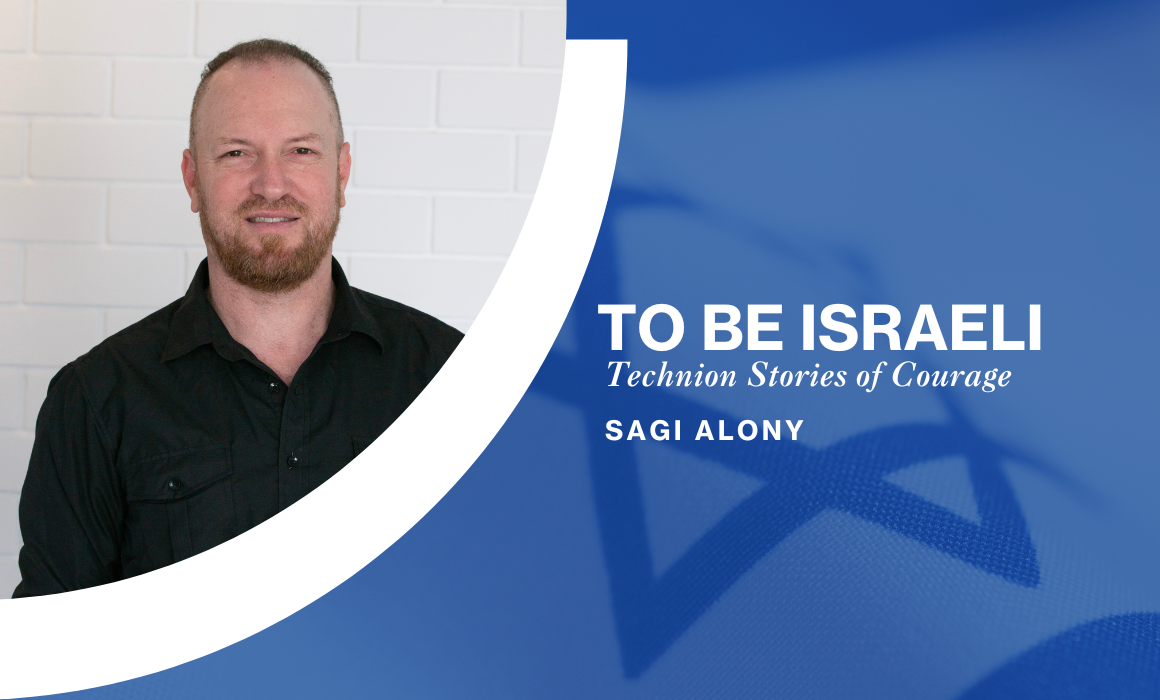
In the wake of the tragic events of October 7, Technion alumnus Sagi Alony ’04, an environmental management consultant, initiated a large-scale project to collect and document testimonies from survivors of the terrorist attacks. The project, named Edut 710 (Eyewitness Testimony 7th of October), is a grassroots effort to ensure the stories of those affected by the unprecedented violence are preserved for historical records and public awareness.
“I want to make sure that nobody will deny it, and nobody can ignore it,” he said, reflecting on the importance of preserving the truth of that day. Even one year later, he feels the weight of the obligation of this work. “It’s like everybody moved on. I still want to figure out what just happened to us. It’s such a profound, unique, tragic, historic event.”
Alony, who was at home with his three children on October 7, was deeply affected by the events and felt compelled to act. Although no longer serving in the military, he quickly realized he needed to contribute to understanding the gravity of what had occurred. His personal connection to the region fueled his drive to create the video testimony project: Alony’s parents met in Kibbutz Nahal Oz, his uncle was a founder of Kibbutz Erez, and he consulted on jobs in the area. “I grew up on a kibbutz and so it was very vivid to me; I could see myself in the situation,” he said.
Edut 710 initially started with five people but has since grown into a large-scale operation, involving more than 400 volunteers, including videographers, photographers, editors, interviewers, IT experts, mental health and legal experts, and more. Tech companies and universities are also partners. Alony’s leadership as the volunteer CEO involves coordinating various departments and maintaining a high ethical and quality standard.
Alony is adamant about the approach to and treatment of the witnesses. The goal is not to get the best story or sound bite, but to be a safe place for the victims and eyewitnesses to share their experiences. Their testimonies are not interrupted; they can speak for as long or as short as they want. And they are shown the videos and can decide if they want them posted publicly or just preserved for historical prosperity. “We’re just here as a vessel to share their stories.”
The team has recorded more than 1,200 testimonies, with an average duration of 45 minutes, contributing to a database that amounts to more than 50 terabytes of footage. “That’s equivalent to about 50 million books,” he explained. All the video is in high-quality 4K resolution, and each one includes a transcript and a five-to-seven-minute video abstract. “It takes about 12 people to complete just one interview.”
The project’s YouTube channel has more than 500 videos posted so far. Edut710.org has about 200, with half in English or English subtitles. One story in particular is etched in Alony’s mind.
“There’s this guy who was sitting in his safe room with his wife and four children for 20 hours. He didn’t know if they would come out alive. Finally, the army got them out and they were brought to a different part of the country. After a shower and a safe place to lay their heads, he’s called by the army and asked to serve. He’s a commander. He said, ‘I looked into my wife’s eyes, and I asked her if it’s alright. And she said yes.’ He could have refused, and we asked him how he could serve after such a traumatic event. His answer resonates in me. He said, ‘They tried to break us, but they failed.’ And you could interpret the ‘us’ in many ways: his family, the kibbutz, the country, or the Jewish people. It reminds me of a term coined by a famous economist: ‘antifragile.’ Israelis are antifragile.”
Edut 710 has not only preserved testimonies in Hebrew but is working on translations in six other languages: English, French, Spanish, German, Russian, and Arabic. The long-term goal is to make these accounts accessible globally, ensuring the events of October 7 are not forgotten.
The volunteers’ dedication reflects a collective commitment to ensuring the tragic day is remembered in its raw, human detail, untouched by the shifting tides of political discourse. As the world moves on, Alony and the team behind Edut 710 remain firmly rooted in their mission: to document, to witness, and to remember.
Sagi Alony received a bachelor’s degree in landscape architecture from the Technion in 2004. He explained that no other university in Israel offers a degree in this field. “The Faculty of Architecture and Town Planning provided me with the broadest base of knowledge in design and urban planning that served as a significant foundation for my ultimate career in providing consultancy services for environmentally sustainable business projects.”
Produced in collaboration with the Technion Alumni Association.
